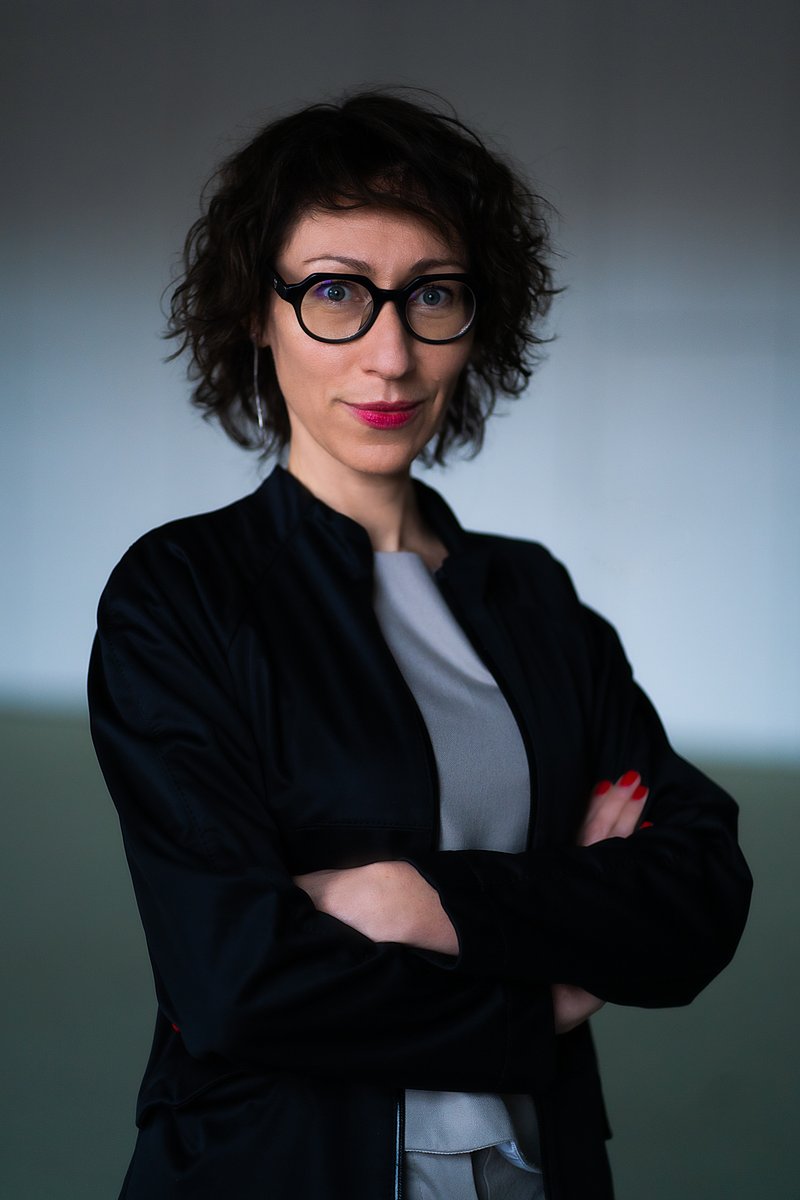Malgorzata Ludwisiak

Malgorzata Ludwisiak. Artistic Director, The Museum of Modern Art in Warsaw, Poland
Years professionally involved in the contemporary art museum field: 2008-present (15 years)
Have you served on another board or organization similar to CIMAM? CIMAM Board since 2019.
Short bio. Describe also your involvement with CIMAM and the museum community:
I am an art historian, curator, art critic, an expert in museum management and academic teacher. Since 2021, I have been a Chief Curator of Modern Art Department in the National Museum in Gdansk (Poland), where I’m responsible for three venues for modern and contemporary art. I’m currently working on a completely new permanent exhibition of the collections as well as on the 2-years program dedicated to the relationship between climate, art and museums. As a director of Center for Contemporary Art Ujazdowski Castle in Warsaw (2014-2019), along with the team we were looking for both experimental programming and new institutional formats. As a vice-director of the Muzeum Sztuki in Lodz (2008-2014), I was responsible mainly for developing public program, education and audience development. Among curated projects, I am especially proud of: contributing to CIMAM conferences (2021 and 2022); an international public program "Curating Institution" (2016-2019, CCA in Warsaw); an exhibition "El Hadji Sy. At First I Thought I Was Dancing" (2016, CCA in Warsaw) reflecting on questions of community and performativity seen through a lens of Dakar, and "Correspondences. Modern Art and Universalism" (with Jaroslaw Lubiak; 2012-13, Muzeum Sztuki in Lodz), which created a dialogue between two collections of 20th and 21st century art: of Kunstmuseum Bern and Muzeum Sztuki in Lodz, applying Walter Benjamin’s notion of passages as a method for re-reading modernity and the very status of an art work. What most interests me in my theoretical research and practical approach is a present and future social role of museums – especially in the face of the climate catastrophe.
I have been a member of CIMAM since 2009, attending almost all the conferences, which makes me well acquainted with the last over decade of CIMAM activities and discussions. For the last 3 years I have been serving as a CIMAM Board member. I am pleased and honored to have been able to contribute to such working groups and initiatives as: Scientific Committee working on conferences’ contents (I was chairing this working group in 2020-21), Museum Watch Committee, CIMAM 60th Anniversary publication or 6 webinars, which I was co-organizing for CIMAM members. I am also honored to represent CIMAM, along with other colleagues, in two panels of the ICOM Conference in Prague.
Motivation Statement: How can you contribute to CIMAM's mission and strategic goals by being a Member of the Board? (i.e strategy, membership, fundraising, governance, network in strategic regions, availability, knowledge or skills in a specific area):
My main interest is the museums’ future. What tools would have museums to generate – depending on the part of the world – to deal with multiple crisis (climatic, energy, economic, social, political), the scale of which is supposed to grow in the near and more distant future? Or maybe we should go beyond 'tools' and rethink the museum model(s)? My concern also goes to the challenges for museums in terms of populist pressures.
I think that my field of research as well as my experience in the museum field and in working for CIMAM as far would be most useful in the three following areas of CIMAM’s activities:
1/ Sustainability. I hope to contribute to the Sustainability Committee – I would be more than happy to bring my research related to the question of museums facing an uncertain climatic future into the committee’s agenda.
2/ Governance and advocacy. I would like to use my experience in defending basic governance standards and museums’ independency on both – local (in Poland) and international (as a member of the Museum Watch Committee of CIMAM) level – to benefit CIMAM members.
3/ Equality. Coming from Eastern Europe I can perfectly understand the position of the less privileged parts of the world – be that in economic, political or visibility terms. CIMAM has done a lot in recent years in this regard: for example, supporting the participation of African and South American professionals in conferences or varying conference fees depending on the economy of the region. I would like this line of CIMAM’s activity to be continued and strengthened, f.eg. by developing platforms where different voices of members can be articulated and included into the CIMAM’s agenda (f.eg. in the form of webinars, surveys, open calls for ideas or proposals).
I addition, I will be happy to offer my research and contacts to the groups working on contents – be that conferences, webinars, publications or other formats. I would like CIMAM to keep up with the hottest debates in the museum area!
Describe briefly the expectations of your involvement as a CIMAM Board member and how you envision CIMAM's priorities in the next years:
In the face of threats to the modern world, such as the climate crisis, rising political tensions or economic crisis, we need an even greater intensity of exchange of experiences and practices. Issues of planetary justice, equality, adjusting to the new circumstances or looking for new modes of coexistence seem to be major concerns of modern and contemporary art museums. I see a great role of CIMAM in supporting them in the process of looking for solutions, bridging museum professionals and learning from each other. This won’t be successful without going much beyond the Western perspective and putting more stress on less economically privileged areas of the globe, especially African countries, which have been among the most underrepresented ones as far. I am sure I will be able to contribute to this process, when I am reelected.